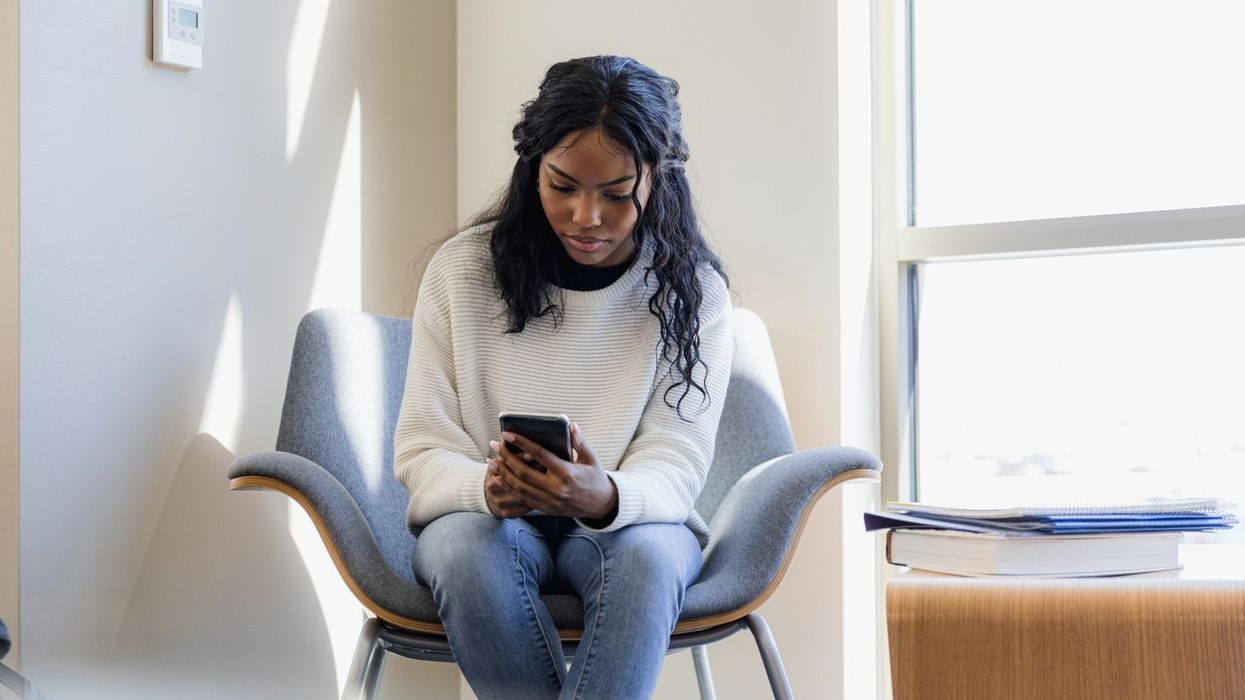SOCIAL media posts of south Asians expressing hatred for their brown skin and parts of their culture have triggered concern among experts.
Videos on TikTok include an influencer who said he disliked being brown skinned, growing up as an Asian teenager due to the 9/11 terror attacks and revealed he was bullied in school. He added that he now regrets making jokes about brown people trying to fit into “white culture” and felt pressured by society and parts of the media.
Another account by an Asian girl features comments, including hating “being ashamed of my culture”, “being shamed for having body hair in places where it’s ‘not feminine’” and “mostly I hate the way I don’t hate being brown, I hate the way it makes me feel”.
Examples on X include a post which says: “I hate being a brown girl, got into study abroad programs and now my parents are talking about coming with me.”
Leading mental health charities and experts have called on social media users to seek out communities to help them build a more positive sense of their identity, follow a range of influencers and block certain words and accounts on online platforms.
Rajinder Dudrah, professor of cultural studies and creative industries at Birmingham City University, told Eastern Eye: “What we are seeing online is a sort of shame – being aware of one’s cultural roots and being brown.
“The Asian disconnect debate is still there, how British are we?
“It has to be welcomed in some ways, people being expressive online, voicing their opinions – but the flip side is like [people being] keyboard warriors, there is not a filter or censorship like what we have in old media.
“Followers of the content are better judges on who is saying what and how they are saying it, such as rebuttal videos or comments in response to a video.
“So watch, use and follow a range of influencers, be savvy on social media. Look at a range of sources, not just one content creator.”
Dudrah added: “There is a historical context to this. In the post-war period when our grandfather’s generation arrived in the UK to work in factories, there was a colonial relationship between south Asians and the English.
“A mindset of being white equates to a better life and superiority.
“There is always a model of two cultures – where do our kids belong in terms of east and west or are we a fusion?”
Recent research showed more male and ethnic minority graduates feel disadvantaged in job applications.
Some 54 per cent of ethnic minority graduates felt disadvantaged when applying for roles because of their ethnicity, compared with 43 per cent last year.
And 53 per cent of Asian or Asian British graduates said their ethnic background was holding them back from finding work, compared to 49 per cent last year, according to the study by graduate careers service Prospects.

Carol Gosal manages a range of mental illness services for black, Asian and minority ethnic people in Kent and West Sussex for the charity Rethink.
Gosal told Eastern Eye: “Racism and racial inequality sadly persist in our society, and there’s still not enough wider understanding of the experiences of Asian communities.
“We know that some people internalise this racism and misunderstanding, finding fault in themselves rather than the fact that their identities and needs often aren’t taken into account, whether that’s at school, work, or when accessing public services like the NHS.
“Many will have experienced just how social media can knock self-esteem. It can be difficult to completely avoid harmful content, though there are small steps you can take, like muting certain words or blocking particular accounts.
“On the other hand, social media can be a force for good, helping people from minority communities connect with others who have. [similar experiences].”
She added: “We would encourage people to seek out communities, both online and in their local area, which can help them build a more positive sense of their own identities.
“This could be connecting with family, joining a sports, arts or music group focused on Asian communities, or getting involved in activities at your local place of worship.
“And though it can be difficult given that our phones are rarely much further than arm’s reach, do take a break from social media if you feel it would benefit your mental health.”
PR experts believe some social media influencers express their personal journey in an attempt to go viral and some others to educate their audience.
TikTok accounts promoting positivity around being south Asian include Gareth Shanthikumar, who created an online safe space for individuals of Asian origin to express themselves and meet likeminded people after opening up about racism he experienced. And Jassa Ahluwalia, who has written a new book about identity called Both Not Half.
Vanessa Joseph, from the mental health charity Mind, said racism can make people more likely to develop mental health problems and can also lead to “internalised racism, colourism, and racial trauma”.
She added: “Our experiences of racism are also personal to each one of us. And they intersect with other forms of discrimination, such as gender, sexuality, or religion.
“This process of making you feel as if you don’t fit society’s norms is sometimes called being ‘othered’.
“Organisations and institutions must challenge systemic and institutional racism and work towards embedding safe, accessible, and culturally appropriate support spaces, where people can talk and connect with others.
“While social media can facilitate openness and connection, it isn’t always beneficial for everyone.”
Joseph added: “We need to understand why negative thoughts about ethnicity and identity arise and make sure that culturally appropriate support is available.
“Crucial to this is making sure we are promoting, telling and listening to positive stories about south Asian culture and identity. Promote safe and culturally appropriate spaces – this could look like spaces specifically run by Asian people or broader inclusive spaces; openly speaking about these issues and sharing authentic content about people’s real-life experiences of being south Asian and the impact this can have on identity; and talks in schools and colleges to inform young people about identity and mental health.”
Mind has a confidential information and support line on 0300 123 3393 (lines open 9am-6pm, Monday-Friday). Rethink’s advice service can be accessed on freephone 0808 801 0525 (Monday to Friday 9.30am-4pm, excluding bank holidays).




